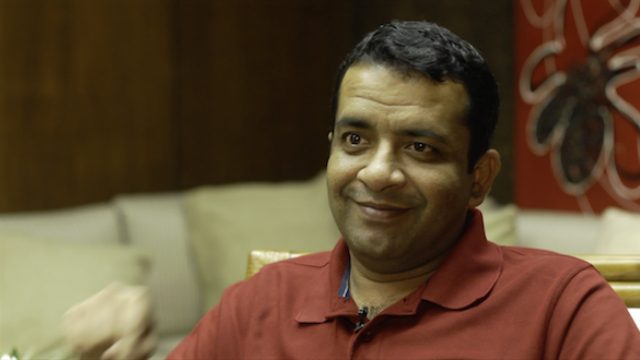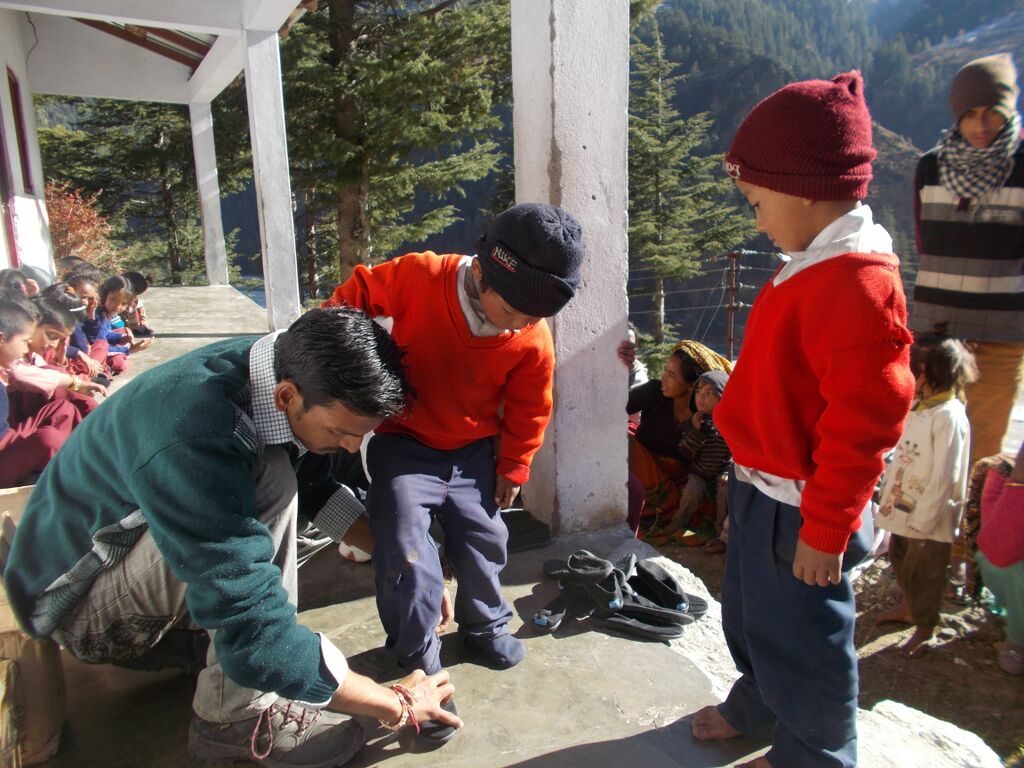SUMMARY
This is AI generated summarization, which may have errors. For context, always refer to the full article.

MANILA, Philippines – Three days after a 7.8-magnitude quake struck Nepal on April 25, Anshu Gupta was already on the ground leading his organization’s first disaster relief initiative outside India.
He’s been doing this work for more than a decade; the non-governmental organization Goonj uses clothing as a tool to empower poor and disaster-stricken communities in India.
In Nepal, the biggest hurdle for Goonj was not the scale of the devastation but the complications in bureaucracy – the paperwork, and rules and regulations of another country.
“Countries need to be more liberal when such kind of disaster happens…. We need to open our borders, open our hearts, go away with the useless paperwork. People are ready to work together, [but] the borders don’t let you,” Gupta tells Rappler in an interview.
And while clothing is at the core of Goonj’s work – processing underutilized cloth to provide the identified needs of communities – it’s not their priority after disasters.
“Unfortunately… people only take clothing as two things: one, as a disaster relief material, and second, as a charitable object. So the moment disaster happens, people send truckloads of clothing. Clothing is not required in a disaster. They’re required in the second, third phase, when people are really settled down,” Gupta explains.
Most neglected basic need
This is one of the many misconceptions about clothing that Gupta and his organization is trying to change for the past decade.
In fact, he believes that clothing – the “first visible sign of poverty” – is the most neglected among man’s basic needs.
“You talk about three basic needs: food, cloth, and shelter, but ultimately, cloth or clothing does not figure in the list of development issues. Across the globe, no planning, no budget allocation, no development goals, no funding agency or any other development agency actually has clothing or cloth as mandate,” he says.
But Goonj sees clothing in a different way.
Take the case of Goonj’s My Pads – cheap cloth sanitary pads for the women of India. With My Pads, Goonj not only provides the hygienic needs of women but also raises the discourse on menstrual hygiene – a taboo topic in less-developed countries like India.
“For us, that small piece of cloth in the shape of a sanitary pad is a tool to create a dialogue, open up the subject, shun the culture of shame and silence, so that people will start talking about [menstrual hygiene]. Once you talk about it, the solution comes.” (READ: Menstruation 101: Putting a period on period myths)

Labor as currency
Goonj’s work in communities highlights the importance of cloth as a sustainable development resource. Volunteers ask every community to identify their needs – for instance, a new bridge or a new road.
“The poorest of poor across the globe also have a voice, also have wisdom, also have willingness to participate.”
– Anshu Gupta, 2015 Ramon Magsaysay awardee
Members of that community will then use local resources to work on those needs in exchange for clothing and other materials from Goonj.
Beyond charity, the organization wants to uphold human dignity and make people stakeholders.
“When we start telling people that labor is your currency, you’re a rich person because you have labor, that obviously gives a lot of confidence to an average citizen,” says Gupta
He adds: “I think from our model that is the only thing people can learn, that the poorest of poor across the globe also have a voice, also have wisdom, also have willingness to participate. It is people like us who do not make them a part of it because of our vested interest.”
Long way to go
Gupta is one of 5 recipients of the 2015 Ramon Magsaysay Award. He was recognized for his “creative vision in transforming the culture of giving in India.” (READ: 2015 Ramon Magsaysay awardees: A legacy lives on)
But while he is grateful that the “world has open up a bit more” because of the award, Gupta also expresses regret.
“I think it’s a big regret, to be honest, because so many good, big national, international awards have come to us and various initiatives, but still the people who mattered, the people who plan for the world, people who have… [the] mandate to do the planning or execution of that, I don’t think they understand the gravity of it,” he laments.
The road is still long and winding for the advocacy. For Gupta, more people, especially those in the academe, still need to take up ignored “non-issues” such as clothing.
“This is how the advocacy will go on. I’m waiting for a day when the policymakers start understanding this as a development model, not as a charitable institution,” he adds. – Rappler.com
Add a comment
How does this make you feel?
There are no comments yet. Add your comment to start the conversation.